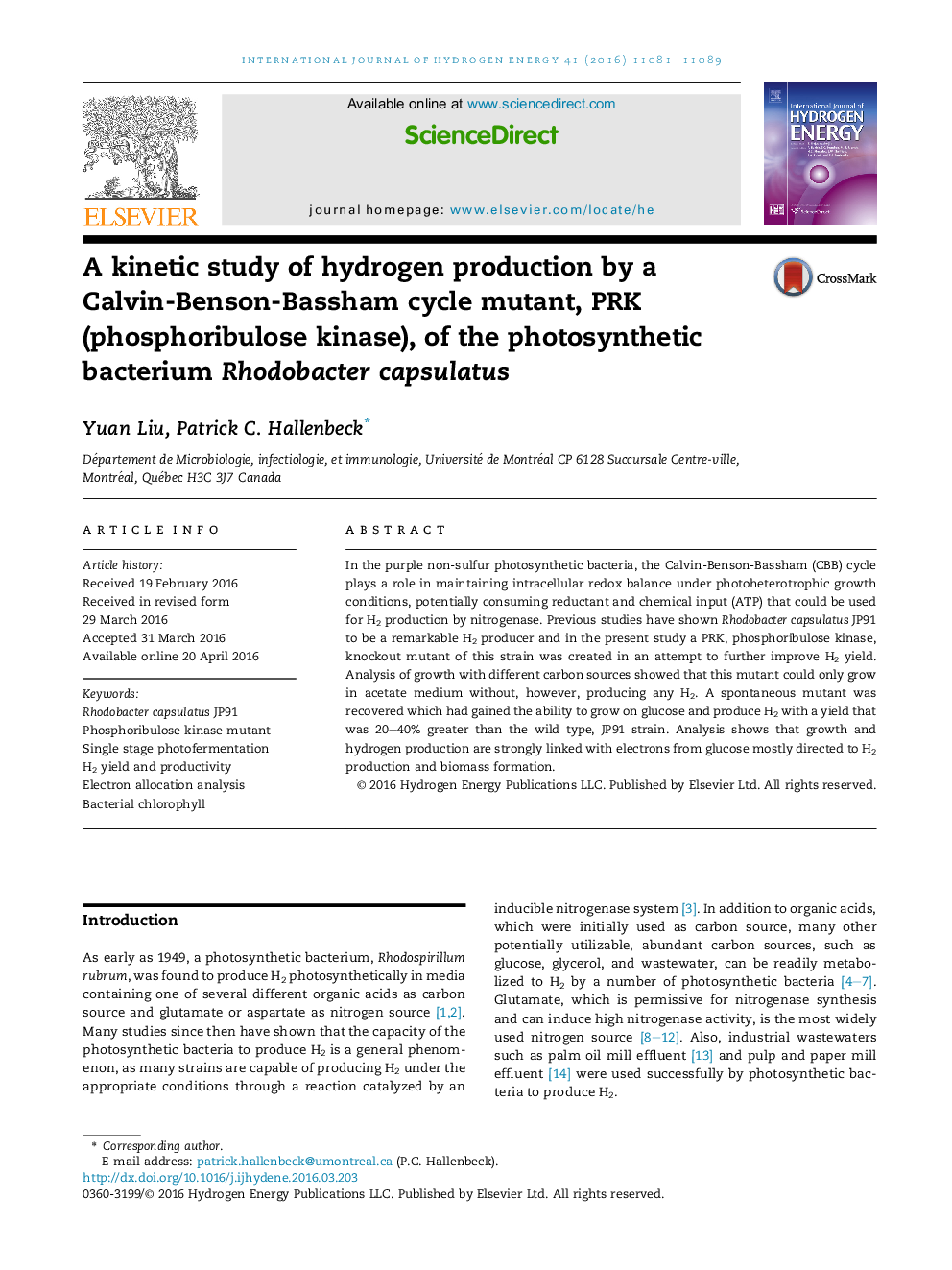| کد مقاله | کد نشریه | سال انتشار | مقاله انگلیسی | نسخه تمام متن |
|---|---|---|---|---|
| 1269542 | 1497399 | 2016 | 9 صفحه PDF | دانلود رایگان |

• A R. capsulatus phosphoribulokinase (PRK) mutant could only grow on acetate.
• No hydrogen was produced by the (PRK) mutant.
• A spontaneous mutants (YL1) producing hydrogen was recovered.
• YL1 produced 20% more hydrogen than the wild-type, strain JP91.
In the purple non-sulfur photosynthetic bacteria, the Calvin-Benson-Bassham (CBB) cycle plays a role in maintaining intracellular redox balance under photoheterotrophic growth conditions, potentially consuming reductant and chemical input (ATP) that could be used for H2 production by nitrogenase. Previous studies have shown Rhodobacter capsulatus JP91 to be a remarkable H2 producer and in the present study a PRK, phosphoribulose kinase, knockout mutant of this strain was created in an attempt to further improve H2 yield. Analysis of growth with different carbon sources showed that this mutant could only grow in acetate medium without, however, producing any H2. A spontaneous mutant was recovered which had gained the ability to grow on glucose and produce H2 with a yield that was 20–40% greater than the wild type, JP91 strain. Analysis shows that growth and hydrogen production are strongly linked with electrons from glucose mostly directed to H2 production and biomass formation.
Journal: International Journal of Hydrogen Energy - Volume 41, Issue 26, 13 July 2016, Pages 11081–11089